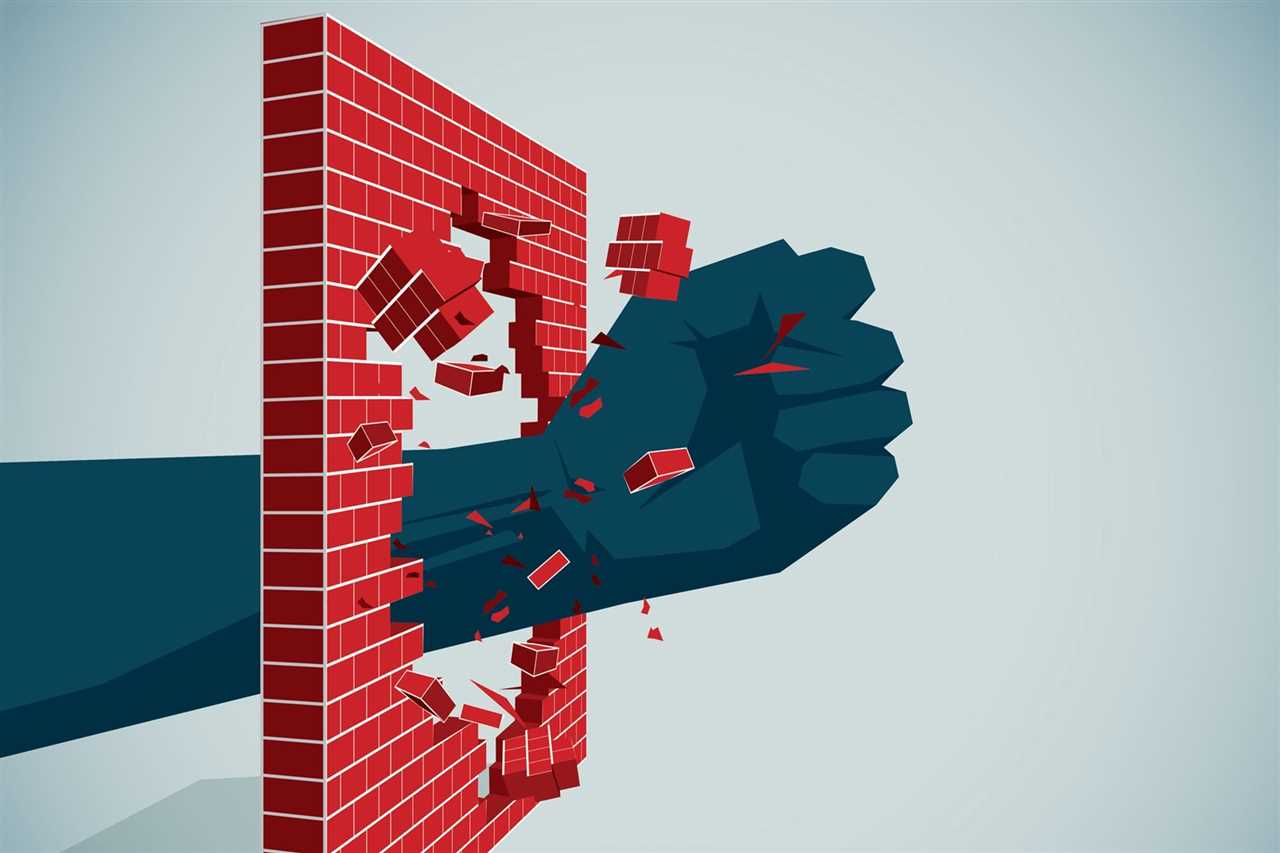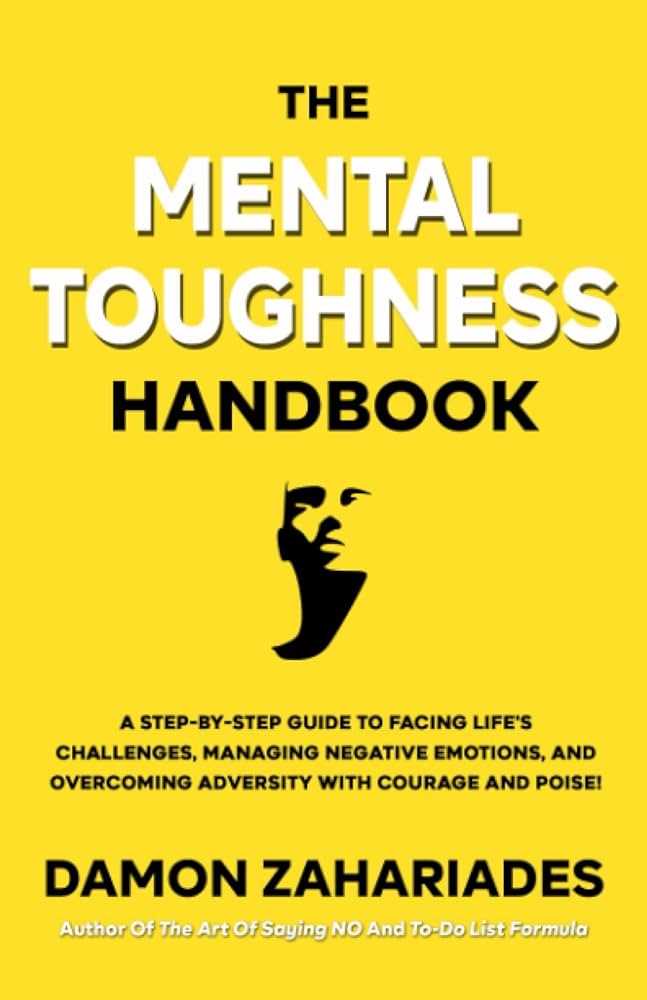
When facing difficult times, it is crucial to have the right mindset and mental preparation to navigate through the challenges. Mental strength plays a vital role in overcoming obstacles and emerging stronger from them. Therefore, it is essential to understand how to mentally prepare for hardships and develop the resilience needed to face them head-on.
One way to mentally prepare for hardships is to acknowledge and accept the reality of the situation. Denying or avoiding the difficulties will only prolong the process of overcoming them. By accepting the challenges, we can shift our focus to finding solutions and taking proactive steps to overcome them.
Another important aspect of mental preparation is to cultivate a positive mindset. This involves reframing negative thoughts and focusing on the potential opportunities that can arise from the hardships. By adopting a positive outlook, we can approach challenges with optimism and determination, which greatly increases our chances of success.
Furthermore, it is crucial to practice self-care and self-compassion during difficult times. Taking care of our mental and emotional well-being allows us to stay resilient and better equipped to face challenges. Engaging in activities that bring us joy and relaxation, such as exercise, meditation, or spending time with loved ones, can help us maintain a positive mindset and reduce stress.
Developing a Resilient Mindset

When faced with hardships, it is important to mentally prepare yourself for the challenges that lie ahead. Developing a resilient mindset can help you overcome these obstacles and come out stronger on the other side.
Here are some tips for developing a resilient mindset:
- Practice self-awareness: Take the time to understand your emotions and reactions to difficult situations. This self-awareness can help you better manage your thoughts and feelings when faced with hardships.
- Stay positive: It can be easy to get caught up in negative thinking when facing challenges, but maintaining a positive mindset can help you stay motivated and focused on finding solutions.
- Set realistic goals: Break down your challenges into smaller, achievable goals. This can help you stay motivated and give you a sense of accomplishment as you make progress.
- Seek support: Reach out to friends, family, or a support group for guidance and encouragement. Having a strong support system can help you navigate through tough times.
- Practice self-care: Take care of your physical and mental well-being. This can include getting enough sleep, eating a balanced diet, exercising regularly, and engaging in activities that bring you joy and relaxation.
- Learn from setbacks: Instead of viewing setbacks as failures, see them as opportunities for growth and learning. Reflect on what went wrong and how you can improve for the future.
- Stay adaptable: Life is full of unexpected challenges, and being able to adapt and adjust your plans can be crucial in overcoming hardships. Embrace change and be open to new possibilities.
By developing a resilient mindset, you can better prepare yourself mentally for the hardships that come your way. Remember that challenges are a part of life, but with the right mindset, you can overcome them and come out stronger.
Embracing Change

In order to mentally prepare for hardships and overcome challenges, it is important to embrace change. Change is inevitable and can often be a source of stress and anxiety. However, by accepting and embracing change, we can develop the resilience and adaptability needed to face difficult situations.
Embracing change involves acknowledging that life is constantly evolving and that we must be willing to adjust our mindset and approach in order to navigate through tough times. This can be challenging, as it requires letting go of familiar routines and stepping into the unknown. However, by embracing change, we open ourselves up to new possibilities and opportunities for growth.
It is important to approach change with a positive mindset, viewing it as a chance to learn and develop new skills. Instead of dwelling on the hardships that may come with change, focus on the potential benefits and the lessons that can be gained from the experience. This shift in perspective can help us to overcome challenges with a sense of determination and resilience.
Embracing change also involves being open to seeking support and guidance from others. It can be helpful to surround ourselves with a strong support system of friends, family, or mentors who can provide encouragement and advice during difficult times. Additionally, seeking professional help, such as therapy or counseling, can provide valuable tools and strategies for coping with change and overcoming hardships.
In conclusion, embracing change is a crucial aspect of mentally preparing for hardships and overcoming challenges. By accepting and embracing change, we can develop the resilience and adaptability needed to navigate through tough times. It is important to approach change with a positive mindset, seek support from others, and view change as an opportunity for growth and learning.
Cultivating a Positive Attitude
When it comes to preparing mentally for hardships and overcoming challenges, cultivating a positive attitude is essential. A positive attitude can make all the difference in how we approach and handle difficult situations.
One way to cultivate a positive attitude is to focus on the present moment and practice gratitude. Taking time each day to appreciate the small things in life can help shift our mindset and create a more positive outlook. It can be as simple as acknowledging the beauty of nature or expressing gratitude for the support of loved ones.
Another important aspect of cultivating a positive attitude is to surround ourselves with positive influences. This could mean spending time with supportive and uplifting friends and family, or seeking out motivational books, podcasts, or mentors. By surrounding ourselves with positivity, we can better navigate through hardships and challenges.
It’s also important to challenge negative thoughts and replace them with positive affirmations. Our thoughts have a powerful impact on our emotions and actions, so it’s crucial to reframe negative thinking patterns. By consciously choosing to focus on the positive aspects of a situation, we can build resilience and find solutions to overcome challenges.
Lastly, self-care plays a vital role in cultivating a positive attitude. Taking care of our physical and mental well-being can help us stay resilient and optimistic. Engaging in activities that bring joy and relaxation, such as exercise, meditation, or pursuing hobbies, can boost our mood and overall outlook on life.
In conclusion, preparing mentally for hardships and overcoming challenges requires cultivating a positive attitude. By focusing on the present moment, practicing gratitude, surrounding ourselves with positive influences, challenging negative thoughts, and prioritizing self-care, we can develop a resilient and optimistic mindset that will help us overcome any obstacle that comes our way.
Building Self-Confidence
One of the key ways to mentally prepare for hardships and overcome challenges is by building self-confidence. Self-confidence is the belief in one’s own abilities and qualities, and it plays a crucial role in how we approach and handle difficult situations.
To build self-confidence, it is important to focus on personal growth and development. This can be done through setting realistic goals and working towards achieving them. By setting and achieving smaller goals, we can gradually build our confidence and belief in our abilities.
It is also important to surround ourselves with positive and supportive people who believe in us and our capabilities. Their encouragement and support can help boost our self-confidence and provide us with the motivation to face and overcome hardships.
Another effective way to build self-confidence is by challenging ourselves and stepping out of our comfort zones. By taking on new and unfamiliar tasks or experiences, we can prove to ourselves that we are capable of handling challenges and overcoming obstacles.
Additionally, practicing self-care and self-compassion can also contribute to building self-confidence. Taking care of our physical and mental well-being, practicing self-acceptance, and being kind to ourselves can help foster a positive self-image and increase our confidence in our abilities to overcome hardships.
In conclusion, building self-confidence is an essential aspect of mentally preparing for hardships and overcoming challenges. By setting goals, surrounding ourselves with positive influences, challenging ourselves, and practicing self-care, we can cultivate a strong belief in our abilities and face any hardships that come our way with resilience and determination.
Practicing Effective Coping Strategies

When facing hardships and challenges, it is important to develop and practice effective coping strategies to maintain good mental health. Coping strategies are techniques and behaviors that individuals can use to manage stress, regulate emotions, and overcome difficulties.
One effective coping strategy is to develop a strong support system. Surrounding yourself with friends, family, and other supportive individuals can provide a sense of comfort and reassurance during difficult times. Talking openly about your feelings and seeking advice or guidance from trusted individuals can help you gain perspective and find solutions to your problems.
Another effective coping strategy is to engage in self-care activities. Taking care of your physical and mental well-being is crucial for maintaining resilience in the face of hardships. This can include activities such as exercising regularly, getting enough sleep, eating a balanced diet, and practicing relaxation techniques like meditation or deep breathing exercises.
Additionally, practicing mindfulness can help you mentally prepare for and overcome challenges. Mindfulness involves being fully present in the moment and accepting your thoughts and feelings without judgment. By practicing mindfulness, you can develop a greater awareness of your emotions and thoughts, which can help you respond to challenges in a more calm and effective manner.
It is also important to challenge negative thinking patterns and replace them with more positive and realistic thoughts. Negative thinking can often worsen the impact of hardships and make it more difficult to overcome challenges. By consciously identifying negative thoughts and replacing them with positive ones, you can change your perspective and approach to hardships.
Lastly, seeking professional help can be an effective coping strategy for dealing with severe hardships and challenges. Therapists and counselors are trained to provide guidance and support for individuals facing difficult situations. They can help you develop coping skills, process your emotions, and provide a safe space for you to express your feelings.
Overall, practicing effective coping strategies is essential for mentally preparing for and overcoming hardships and challenges. By developing a strong support system, engaging in self-care activities, practicing mindfulness, challenging negative thinking patterns, and seeking professional help when needed, you can build resilience and successfully navigate through difficult times.
Developing Problem-Solving Skills

To prepare for hardships, it is essential to develop strong problem-solving skills. When faced with challenges, having the ability to think critically and find effective solutions is crucial. Here are some strategies to help improve problem-solving skills:
- Break down the problem: Start by breaking down the problem into smaller, more manageable parts. This will make it easier to identify the root cause and find potential solutions.
- Research and gather information: Take the time to research and gather relevant information about the problem. This will provide a better understanding of the situation and help generate possible solutions.
- Generate multiple solutions: Avoid settling for the first solution that comes to mind. Instead, brainstorm and generate multiple solutions. This will increase the chances of finding the most effective one.
- Evaluate the pros and cons: Once you have a list of potential solutions, evaluate the pros and cons of each. Consider the potential outcomes and consequences of each solution.
- Select the best solution: Based on the evaluation, select the solution that seems most promising. Consider factors such as feasibility, practicality, and potential impact.
- Implement the solution: Take action and implement the chosen solution. Be prepared to adjust and adapt as needed.
- Reflect and learn: After implementing the solution, take the time to reflect on the process and outcome. Identify lessons learned and areas for improvement.
By developing problem-solving skills, you can better prepare yourself for hardships and overcome challenges with confidence and resilience.
Seeking Support from Others

When facing hardships, it is important to remember that you do not have to go through them alone. Seeking support from others can provide you with the mental strength and resilience needed to overcome challenges.
There are several ways to seek support from others during difficult times:
| 1. Talk to friends and family: | Reach out to your loved ones and share your feelings and concerns. They can offer advice, encouragement, and a listening ear. |
| 2. Join a support group: | Find a support group or community that focuses on the specific hardship you are facing. Connecting with others who have gone through similar experiences can provide a sense of understanding and solidarity. |
| 3. Seek professional help: | If you are struggling to cope with hardships on your own, consider reaching out to a therapist or counselor. They can provide guidance and help you develop effective coping strategies. |
| 4. Engage in online communities: | There are numerous online forums and communities where you can connect with people who are going through similar challenges. Sharing your experiences and receiving support from others can be incredibly empowering. |
Remember, seeking support from others does not make you weak. It is a sign of strength and self-awareness to recognize when you need assistance. By reaching out to others, you can gain valuable insights, perspective, and encouragement to help you navigate through hardships and overcome challenges.

I am Patrina de Silva, a psychologist and mental health blogger in Sri Lanka. After obtaining psychology degrees from the University of Colombo and Monash University, I returned home to work as a counselor while also starting the popular blog “Pressy but Happy” to provide advice on psychological issues. Over the past decade, my empathetic articles have made my blog a leading mental health resource in the country. In addition to writing, I maintain a private therapy practice, frequently volunteer counseling time, and conduct seminars, driven by my passion for destigmatizing mental illness and educating the public on the mind-body connection. I strive to be an influential voice in my field through my compassionate approach.
